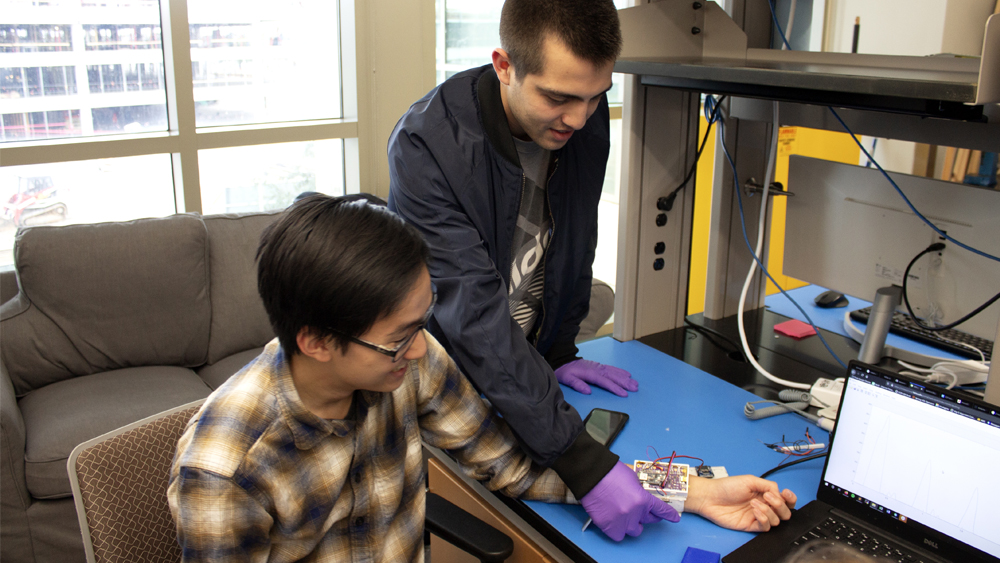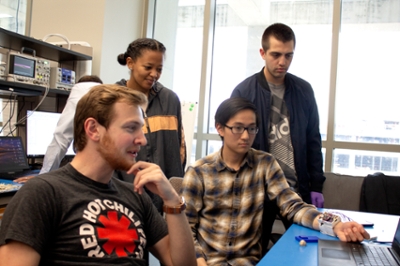
Four electrical engineering seniors put their skills to the test by teaming up with a biomedical engineering professor to design a wearable blood pressure device for their senior capstone project.
Eden Habtegebrial, Austin Mitchell, Alexander Ngo and Ross Raybon were tasked with developing a device that could constantly monitor blood pressure overnight and deliver the results to an app for health care tracking.
The idea was developed out of Dr. Roozbeh Jafari’s lab in biomedical engineering, but the students were able to bring in electrical knowledge to help figure out a way to have the controller in the device be small enough to wear and also keep the power needed as low as possible.
“Since none of us had done anything quite like this before, most of the process was a lot of research online, trial and error, and asking questions to other people in the lab,” Raybon said. “We all had to really learn a lot of technical and hands-on skills to complete this project that we hadn’t learned or really used in labs and classes before.”

Raybon said the team members were drawn to work on an interdisciplinary project because of the impact biomedical engineering can have on many people.
“The biomedical work done in Dr. Jafari’s lab requires a lot of electrical engineering knowledge,” he said. “It’s really neat being able to use our electrical knowledge and also learn some new things related to biology and anatomy.”
The four students graduated in December and all have plans lined up. Raybon will work for Lockheed Martin as a test engineering associate, Habtegebrial will be an engineer at automation company ABB, Ngo is headed to California to work in electronics engineering for Lockheed Martin and Mitchell is also headed to the West Coast to work as an account development representative at Arrow in Seattle, Washington.